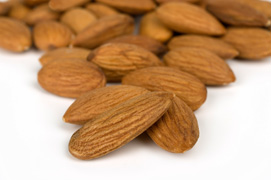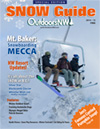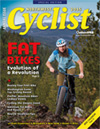Sports Nutrition

It’s not as basic as you think
By Adam Rinde, ND
Sports Nutrition philosophies vary and many include short-cuts, such as meal-replacement foods. While practical, and perhaps cost-effective, nothing replaces good solid nutritional fundamentals when approaching sports performance.
It’s true that the athlete who trains rigorously on a daily basis needs more fuel than one who performs a milder regimen two or three times per week. Calorie requirements can be as much as 23 to 39 calories per pound of body weight per day for the training athlete who exercises to exhaustion each day.
Before you get concerned about your waist line expanding, realize this caloric goal doesn’t really apply to the weekend warrior. Nonetheless, active people must eat adequate amounts of carbohydrates to supply the body with the fuel required to exercise for long bouts of time. And, the under-consumption of carbohydrates is often a source of exercise fatigue.
Carbohydrate consumption for active athletes usually amounts to 4.5 grams of carbohydrates per day per pound of body weight or 60- to 70- percent of total dietary calories.
Also, protein intake for active athletes should be monitored. Protein plays a major role in the recovery of muscle issue after exercise. And, for active athletes, protein requirements are approximately, 0.75 grams per pound of body weight per day.
Those with an active chronic disease may need these targets modified by your physician to meet individualized goals.
Before exercise it’s better to eat small amounts of foods that will provide rapid energy. These would include foods like fresh fruit and vegetables, and yogurt. Those with Exercise Induced Asthma (EIA) should be cautioned to avoid mucus forming foods before exercise like citrus fruits and dairy as these may be triggers for EIA. During exercise, it’s best to eat a fast-acting carbohydrate that is re-hydrating, such as melons or grapes. These fruits have high water content and are good sources of glucose for energy.
While diet philosophies are controversial and vary depending on your perspective and cultural background, my opinion is that an athlete’s diet should include high quality carbohydrates such as corn and whole grain wheat tortillas, kasha, millet, oatmeal, polenta, potatoes, quinoa, brown rice, sweet potatoes, Udon Noodles, and whole grain bread and pancakes.
In addition, healthy protein sources should be included such as black beans, chicken, eggs, halibut, kidney beans, lentils, pinto beans, salmon, shrimp, sole, split peas, tempeh (fermented soy) and tuna. It’s also important to consider healthy fats especially when replenishing the body’s energy store after working out. These could include almonds, avocados, cashews, nut butters, olive oil, peanuts, pecans, sunflower seeds and walnuts.
More advanced athletes who train almost daily to the point of fatigue and those interested in optimizing sports nutrition may be interested in supplementation to support energy metabolism and tissue recovery.
In supplements, nutrients are made available in super physiologic doses, because the whole food equivalent would be unrealistic to consume. These nutrients include Co-enzyme Q10, Alpha Lipoic Acid, Magnesium, B-Vitamins, Antioxidants, Whey Protein, Creatine, D-Ribose, L-Glutamine, and L-Carnitine.
In my practice, I help athletes establish effective training doses of these nutrients and also discuss appropriate food sources for these nutrients.
Adam Rinde, ND is a Naturopathic Physician practicing at Sound Integrative Health, PLLC in Kirkland, Wash. Dr. Rinde’s practice is a General Practice with special interest in Physical Medicine, Exercise, Diabetes, Cardiovascular Disease and Pain Management. You can contact him at www.drrinde.com, drrinde@soundintegrative.com, (425) 889-5894.



